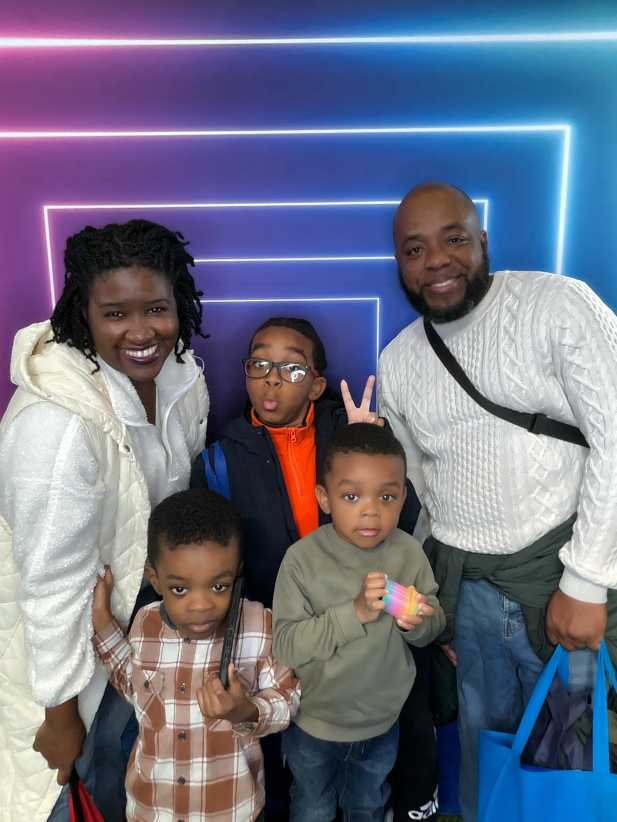 For every fact you think you know about good parenting, there are dozens of scientific studies to prove the opposite. When one report tells us that video games desensitize kids to violence, another insists they help develop problem-solving skills. With all the noise, instinct tells us to find the one “correct” way to parent. Dalton Conley, a university professor at New York University, insists that there isn’t one.
For every fact you think you know about good parenting, there are dozens of scientific studies to prove the opposite. When one report tells us that video games desensitize kids to violence, another insists they help develop problem-solving skills. With all the noise, instinct tells us to find the one “correct” way to parent. Dalton Conley, a university professor at New York University, insists that there isn’t one.
The author of books that focus primarily on socioeconomic status like Being Black, Living in the Red and Elsewhere, U.S.A., Conley dives into his sociological grab bag to present us with Parentology (Everything You Wanted to Know About the Science of Raising Children But Were Too Exhausted to Ask). While raising his daughter E and his son Yo, Conley burrowed into that intimidating cave called research and applied it to his own children. Occasionally, he struck gold.
We caught up with Conley to discuss his book, his children’s names, and what it’s like to approach parenting as a scientist.
Summarize your latest book for us.
There is this crisis that we don’t know how to parent anymore in the United States… I meant to relieve that anxiety by providing a funny account of my own stumbling attempts to parent, where as a scientist I am neurotically aware of the latest science of what you should and shouldn’t do.
Who is your target audience?
It’s really trying to be a funny memoir that anyone could read…but being that it’s “parenting,” parents are going to end up being the main target audience.
How would you want parents to use Parentology?
It’s meant to entertain, but if there’s a lesson below that, it’s that there is no formula [for parenting]. It’s more of a method than a formula to demystify the science of child development and psychology, and to show that parents can actually be empowered to use the latest scientific literature.
What sets your book apart from other books in the parenting genre?
When I read my friend Amy Chua’s book, Battle Hymn of the Tiger Mother, she talks about three hours of violin practice a day. Then there’s the French example Bringing Up Bébé that talks about how to ignore your kids so they learn how to wait. It stresses me out… My book is meant so that parents will come away relaxed. They’ll have a good laugh and they’ll think: “This guy is a kook. He did so many crazy things, and I think his kids are still alive, safe, and healthy.”
In the preface, you define the word “parentology” as a specific type of philosophy in child rearing. Why did you title your book this way?
I created the term myself and the title was a very long, involving process…At one point I wanted to call it The Child-Rearing Lab Manual, and people didn’t get that. I had a subtitle that I wanted to use that my publisher thought would scare people off—A Social Scientist Experiments On His Kids So You Don’t Have To—they thought that was creepy. Apparently, my humor is too out there for the book-buying public.
You dedicated all of chapter three to the subject of naming your children. Tell us about the story behind your children’s names.
There are no advertisements for “Pick John or Emily” billboards or TV commercials… It’s an intensely personal choice, yet there’s this incredible social power that dictates our naming choices… My daughter’s name is E, just the letter E, and she was born in January of ’98. Little did we know at that time—but obviously subconsciously we knew—we were entering the age of E-everything. You know eTrade, eBay, eCommerce…clearly, if we had to pick a letter it was strange that “E” was what we picked. Then for our son…we wanted to challenge the ethnic assumption so his name is Yo Xing [who goes by “Yo”]. It sounds Chinese but he is actually blue-eyed with sandy-colored hair. There is a scientific rationale for strange names. There is some empirical evidence that they tend to teach kids to be self-aware more and have impulse control because they become acutely aware that their name is strange. If they’re teased, they learn to deal with that, to not strike back and let it slide off their back.
Later in the book, you discuss your son Yo’s experience in first grade, when his teacher told you he tested below average in reading. You then examine children’s literacy. Out of the many topics on parenting, how did you decide which ones to include in your book? Did you use subjects that were significant to you while raising your children? Or did you choose subjects that you thought were universally relevant, and then applied your own experiences to those?
It really is both, where things come together. In this case, the misconception with reading was that early literacy was important or mattered. My understanding of the research literature and my own experience was that aural comprehension was much more important than actually decoding words on the page…That is a quintessential example of where my knowledge of the scientific literature and my parenting practice really came together and was something I was definitely going to write about. I suppose there are quirky things I did that I couldn’t justify scientifically that didn’t make it, and likewise, there’re millions of scientific studies that didn’t really come up.
The book must have required further research on your part. What were the biggest insights you gained while writing Parentology and how did these change you as a parent?
For example, there’s a whole chapter on bribing my kids, setting up reward systems for doing things like math. That research literature had been evolving over the years, including during the time when it went from first draft to final book…At a certain point, the book was going to page proofs and I couldn’t add each new study. There’s an area where I’m not sure what the ultimate consensus will be, but I just relate my own experience at the end …for some kids they are very responsive, and for some kids, it erodes their motivation, and some kids, there’s no effect at all. You won’t know which group your kids fall into until you at least try for a little bit. Even if you read the scientific literature, you’re still doing a trial and error and hypothesis formation and rejection, just more informed.
How did your children react when you told them you were going to write a book that is, essentially, about them?
I don’t know if I’d say they’re blasé about it, but they’re definitely not shocked. They’ve grown up with their mother as a conceptual artist who hasn’t done work about them, but has dragged them along and has employed them as workers in her projects. I’m somebody who has often written about science in an autobiographical lens, so I don’t think they’re surprised. But just in case, I bribed them, gave them each a part of the revenue. That was an experiment in itself to see what they did with that.
Can you give us an update on them?
They’re in high school now…in two separate schools and having the usual challenges of adolescence, and adjusting to high school. [My daughter is] a sophomore now and [my son is] a freshman, so he’s going through what she went through last year, which is adjusting to both the academic and social life of high school. I think despite their weird names they’re pretty typical New York kids.
What are joys and challenges you are experiencing in parenting right now?
I definitely think that the parenting challenge shifts from the nurturance of early childhood to keeping tabs on them in adolescence, making sure that they’re on the right path, that they’re not being influenced to use drugs…You want to back off at a certain point but you also keep your ear to the ground and know what’s going on in your kid’s life.











